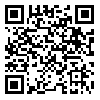BibTeX | RIS | EndNote | Medlars | ProCite | Reference Manager | RefWorks
Send citation to:
URL: http://ijme.tums.ac.ir/article-1-5742-en.html
Disasters and accidents usually occur unexpectedly and without warning, and frequently cause the deaths of millions of people all over the world. In addition to general and specialized medical staff, volunteers, many of whom lack the necessary training for providing care to victims, enter the scene. In recent years, there has been rising concern about prosecution of volunteers who participate in relief operations due to the possibility of harm to victims. The aim of this study was to investigate the application of the "Ihsan rule" to liabilities resulting from unintentional and uninformed actions of volunteers who operate during disaster relief.
This was a review study conducted through examination of related articles on SID, Magiran, Google Scholar and Pubmed. The results showed that the Ihsan rule cannot absolutely and ubiquitously eliminate the liability of volunteers who participate in relief operations after disasters and accidents. The reason is that although the rule recognizes benevolent motives, good intentions and non-anticipation of monetary compensation, volunteer aid should be approved by experts, and the possibility of harming the injured should not exceed the expected benefits. Consequently, volunteer acts in disasters and accidents are acceptable if:
- Basic training and education is provided to all employees of the medical profession who may volunteer for relief operations after disasters and accidents.
- Volunteer deployment is executed in the form of committees or specific scientific groups that will organize and train members so that they will perform relief operations according to the guidelines of these institutions.
Received: 2016/04/27 | Accepted: 2016/07/26 | Published: 2016/08/6
| Rights and permissions | |
 |
This work is licensed under a Creative Commons Attribution-NonCommercial 4.0 International License. |





